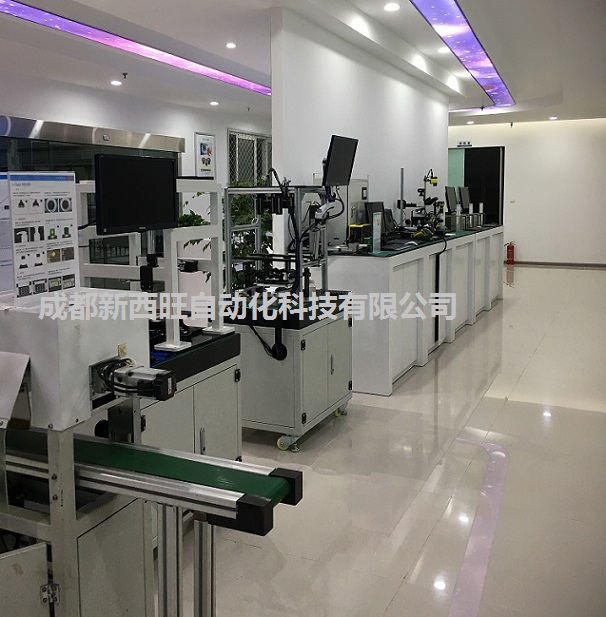In the automation industry, machine vision, as a comprehensive technology, integrates a variety of technologies, such as image processing, mechanical engineering technology, control, electrical lighting, optical imaging, sensors, analog and digital video technology, computer hardware and software technology (image enhancement and analysis algorithms, image cards, I/O cards, etc.). What are the components of a simple machine vision system? Here we take a look:

1. Visual imaging
Visual imaging consists of several typical components: light sources, lenses, and industrial cameras.
Both the light source and the lens require us to master the optical knowledge, and different lighting methods can make the camera produce completely different images of the object; The choice of magnification, focal length and field of view of the lens directly determines the fidelity of the imaging. For a machine vision engineer, mastering how to choose the lens, how to choose the light source, how to determine the lighting method is the most basic skill.
Industrial cameras need us to master photoelectric knowledge, master the difference between camera sensors, master the basic knowledge of image imaging such as clarity, dynamic range, field of view Angle, etc., so that we can choose the right camera according to the needs and scenes, the fastest way to master these knowledge is to buy an entry-level SLR to study the relationship between these imaging parameters and imaging.
2. Image processing part
We generally understand that image processing is carried out on a PC machine, in fact, in the industrial field, most of the industrial computer is used, because it is stable, coupled with cost advantages.
In recent years, the development of embedded hardware is also booming, many factories for small needs such as the control of hundreds of dashboard switches and status monitoring, can fully use the Raspberry PI and other open source hardware to achieve.
For beginners, you can give priority to the development of the PC platform, X86 platform, and extend to the embedded platform after being familiar with it.
In the software part, most of the application layer uses C#,.net, QT, C++ to achieve, so master one of these programming languages is necessary; In terms of image algorithms, typical open source algorithms include opencv, and commercial ones include halcon, visionpro, etc. It is recommended to start with halcon. If you want to go further at the algorithmic level, you can look at machine learning, which may be the main direction in the future.
3. Motion control part
Typical motion control cards such as Googo can be studied. A more advanced PLC can also be played, and the difficulty in this part is that the accuracy is corrected, because many scenes and needs have very high requirements for accuracy.
Chengdu Xinxiwang is a machine vision expert, mainly for different customers in the machine vision inspection needs, to provide professional detection, measurement, guidance, positioning and other vision solutions, improve the production efficiency of customers, reduce labor costs, improve market competitiveness. At present, we have independently developed core technology achievements: high-precision alignment system, AOI detection system, BC system, code-reading - automatic Posting system and other products, welcome to buy!
Phone:028-62705808
Fax:028-62705808
Mobile Phone:18215640190
Email:sales@cdxiwang.com
Address:2-8-6, Chen Electric Technology Innovation Park, 68 Shuangbai Road, High-tech West District, Chengdu